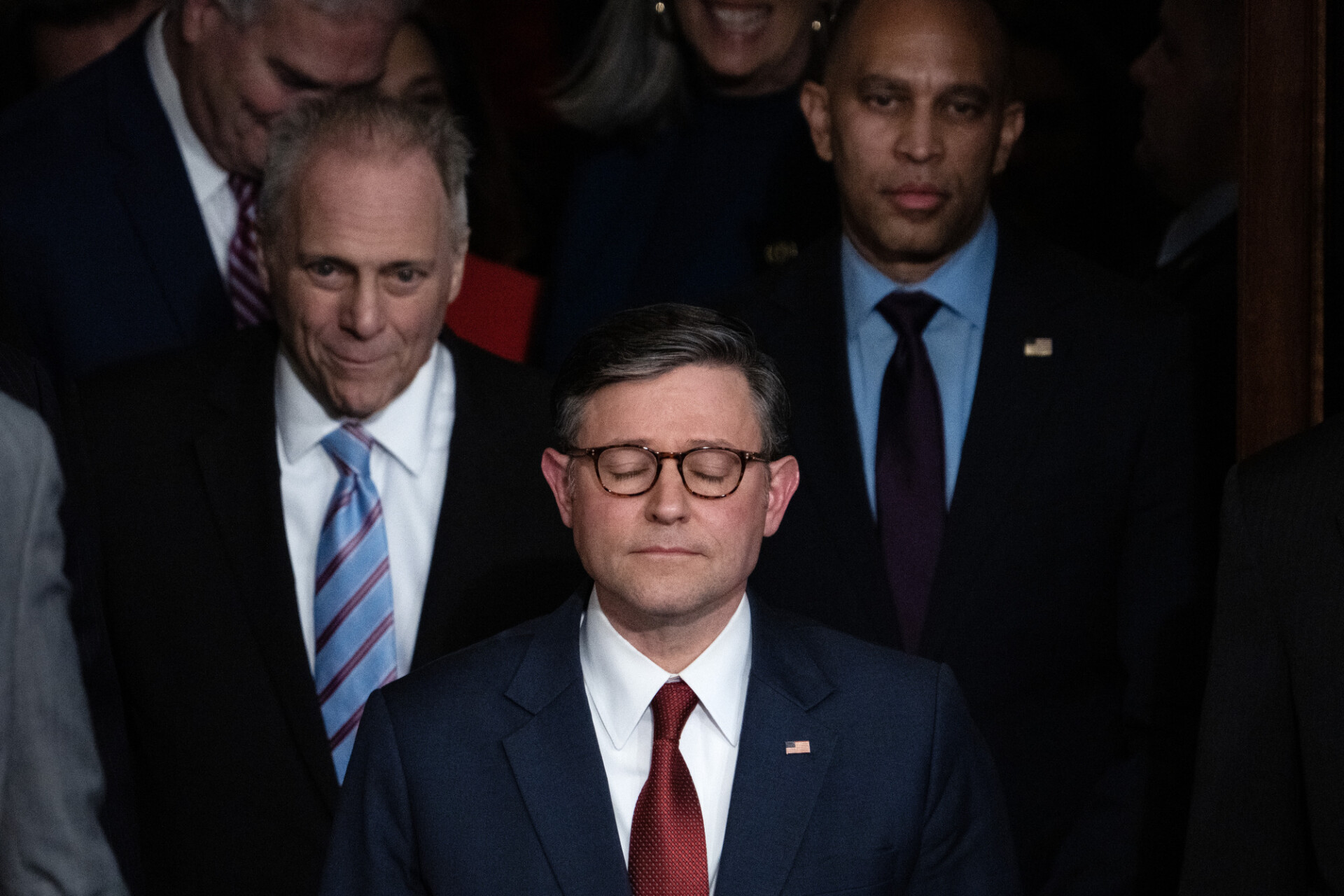If Kevin McCarthy was elected House Speaker after a marathon of ballots in 2023, Mike Johnson’s single-ballot Speakership reelection was a 5K of bated breaths. As Republicans control the House by only four votes (219 to Democrats’ 215), even a few defections could have cost Johnson the Speakership or led to a second ballot. Six Republicans at first refused to cast their votes for the Speaker’s race, and three more supported other candidates. Yet those six eventually voted for Johnson, and two of the other three anti-Johnson Republicans switched their votes to him after some backroom arm-twisting. Friday afternoon’s spectacle offers a prelude to the challenges awaiting Republican leadership in the months ahead.
Compared to McCarthy two years ago, Johnson occupied a more favourable strategic position in the political landscape. Back then, McCarthy faced major defections from the House Freedom Caucus, and grassroots activists often applauded dissenter Republicans who tilt against the GOP “establishment” or the “uniparty.” This time around, Johnson was viewed as a surrogate for Donald Trump, a beloved figure among those very same activists. The President-elect worked the phones to bring House holdouts around and publicly championed Johnson.
With Republican margins so tight in the House, Johnson’s political survival depends on staying in Trump’s good graces. But those narrow margins also make him reliant upon other Republican stakeholders in the House, too. Tellingly, nine Republicans either were silent when their names were first called or voted for someone other than Johnson. That’s the exact number needed to initiate a motion to vacate the chair under the new House rules package. To dodge Kevin McCarthy’s fate, Johnson offered bureaucratic olive-branches, such as non-binding “working groups” to identify potential government cuts.
Even if Johnson is able to keep the Speaker’s gavel, that doesn’t mean he’ll have the easiest time corralling his fractious caucus on an ambitious legislative agenda. Republicans’ current 219 seats could be temporarily reduced to 217 seats if Trump’s cabinet nominees from the House get approved. That would mean that only a few Republican defections could kill a party-line bill. Last month, dozens of House Republicans voted against a Trump-endorsed continuing resolution that would have kept the government open and raised the debt ceiling. A Tea Party rebellion over spending bills could very well become a major political constraint on the new Republican trifecta.
And Republicans have a very narrow margin of error. Kentucky Congressman Thomas Massie refused to budge on his opposition to Johnson and defied Trump on spending and other issues when he was last president. In 2020, Trump vented his displeasure with Massie and said he should be thrown “out of the Republican Party.” Yet, despite the opposition of both Trump and Liz Cheney, Massie handily won his primary that year. This take-all-comers iconoclast is unlikely to bend, and one or two other Republicans joining Massie could immediately put a bill in limbo.
Last Congress, divisions within the House GOP effectively elevated Democrats into governing partners. Because Johnson was unable to muster party-line majorities on issues ranging from spending to foreign aid, he often had to turn to a grand coalition of Republicans and Democrats to pass legislation. Maximal-purity intransigence served the interests of performative outrage on social media, but undermined populist policies.
The upcoming budget battles are likely to put a spotlight on divides in the Republican coalition. Many holdouts in the GOP caucus come from solidly Republican districts and prioritise reducing government spending, but central to Trump’s own populist realignment is a dismissal of the “cut the government to the bone” vision of the Tea Party era. A battle over austerity politics could paralyse the Republican trifecta.











Join the discussion
Join like minded readers that support our journalism by becoming a paid subscriber
To join the discussion in the comments, become a paid subscriber.
Join like minded readers that support our journalism, read unlimited articles and enjoy other subscriber-only benefits.
Subscribe